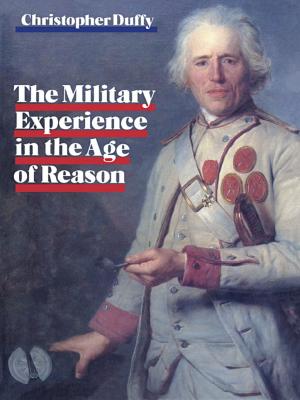Hegemonic Transitions, the State and Crisis in Neoliberal Capitalism
Nonfiction, Social & Cultural Studies, Political Science, Politics, Economic Conditions, Business & Finance, Economics| Author: | ISBN: | 9781134026777 | |
| Publisher: | Taylor and Francis | Publication: | January 8, 2009 |
| Imprint: | Routledge | Language: | English |
| Author: | |
| ISBN: | 9781134026777 |
| Publisher: | Taylor and Francis |
| Publication: | January 8, 2009 |
| Imprint: | Routledge |
| Language: | English |
More than 15 years have passed since the end of the Cold War, but uncertainty persists in the political-economic shaping of the world economy and state system. Although many countries have institutionalized neoliberal policies since the mid-1970s, these
policies have not taken hold to the same degree, nor have their effects been uniform across all countries. Nevertheless there has been widespread deepening of inequalities, and, therefore, scepticism towards the neoliberal project. Uncertainty prevails not only in the relations between states, but also in the relations between forces of capital, citizens, and political power within states. Moreover, there is conceptual confusion in our understanding of the events and processes of neoliberal global transformation. This collection of essays provides a comprehensive theoretical and empirical examination
of neoliberal restructuring as a complex political process. In an effort to penetrate and clarify this complexity, the book explores the connections between the economy, state, society, and citizens, while also offering current examples of resistance to neoliberalism.
The book provides a forum for rethinking politics that represents a turn to societal forces as essential not only to the uncovering of this complexity but also to the formulation of democratic possibilities beyond global hegemonic projects. The book does not seek to produce a new model for social change, nor does it dwell on the spatial aspects of modernity's new form or the emergence of a new state hegemony (China) or new forms of rule (empire) in managing the world capitalist economy. Instead, the book argues that an understanding of hegemonic transformations requires the problematization of global power as embedded in historically specific social relations.
More than 15 years have passed since the end of the Cold War, but uncertainty persists in the political-economic shaping of the world economy and state system. Although many countries have institutionalized neoliberal policies since the mid-1970s, these
policies have not taken hold to the same degree, nor have their effects been uniform across all countries. Nevertheless there has been widespread deepening of inequalities, and, therefore, scepticism towards the neoliberal project. Uncertainty prevails not only in the relations between states, but also in the relations between forces of capital, citizens, and political power within states. Moreover, there is conceptual confusion in our understanding of the events and processes of neoliberal global transformation. This collection of essays provides a comprehensive theoretical and empirical examination
of neoliberal restructuring as a complex political process. In an effort to penetrate and clarify this complexity, the book explores the connections between the economy, state, society, and citizens, while also offering current examples of resistance to neoliberalism.
The book provides a forum for rethinking politics that represents a turn to societal forces as essential not only to the uncovering of this complexity but also to the formulation of democratic possibilities beyond global hegemonic projects. The book does not seek to produce a new model for social change, nor does it dwell on the spatial aspects of modernity's new form or the emergence of a new state hegemony (China) or new forms of rule (empire) in managing the world capitalist economy. Instead, the book argues that an understanding of hegemonic transformations requires the problematization of global power as embedded in historically specific social relations.















